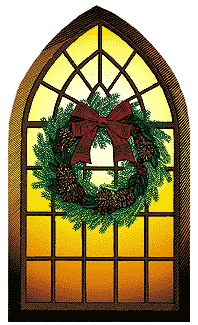|
CHRISTMAS DAY
Christmas has it's roots in early Christianity, however, it
wasn't celebrated by the early church until the fourth
century when the church decided to redeem a Roman pagan
winter solstice festival: the festival of Saturnalia.
This December holiday was considered the birthday of the
unconquered sun. Romans danced in the streets with gifts
under their arms and greenery atop their heads.
The custom of gift-giving on Christmas goes back to Roman
festivals of both Saturnalia and Kalends. The very
first gifts were simple items such as twigs from a sacred
grove as good luck emblems. Soon that escalated to food,
small items of jewelry, candles, and statues of gods. To the
early Church, gift-giving at this time was a pagan holdover
and therefore severely frowned upon. However, people would
not part with it, and some justification was found in the
original gift giving of the Magi, and from figures such as
St. Nicholas. By the middle ages gift giving was accepted.
Before then it was more common to exchange gifts on New
Year's Day or Twelfth Night.
Germanic tribes of Northern Europe also celebrated mid-winter
with feasting, drinking, religious rituals and the lighting
of the Yule log. During the Middle Ages,
Catholic priests sought connections between biblical
teachings and pagan traditions - believing that a
convergence of customs would lead more individuals to
Christianity. |

CHRISTMAS CLIPART INDEX
HISTORY
OF CHRISTMAS |